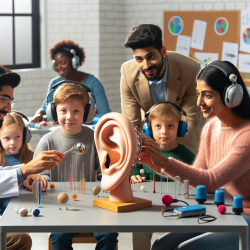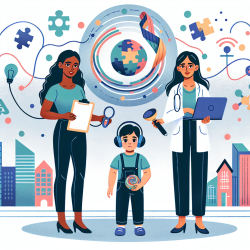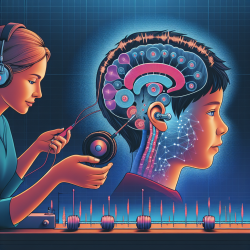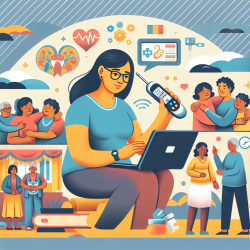In today's rapidly evolving educational landscape, school counselors face the unique challenge of addressing the diverse mental health needs of students. With increasing awareness of the importance of mental health, the demand for effective, accessible, and timely support has never been higher. TinyEYE is at the forefront of this transformation, offering innovative online therapy services that empower school counselors to provide exceptional care to their students.
The integration of virtual therapy into school systems represents a significant advancement in the way mental health services are delivered. This approach not only bridges the gap between students and mental health professionals but also ensures that every student has access to the support they need, regardless of geographical barriers. As school counselors, understanding the potential and benefits of online therapy is crucial for fostering a supportive and inclusive educational environment.
Why Virtual Therapy?
Virtual therapy, also known as teletherapy, offers several advantages over traditional in-person therapy sessions. Here are some key benefits:
- Accessibility: Students in remote or underserved areas can access mental health services without the need for travel.
- Convenience: Online sessions can be scheduled flexibly, accommodating the busy schedules of both students and counselors.
- Comfort: Many students feel more at ease in their home or familiar environments, which can enhance the effectiveness of therapy.
- Continuity: Virtual therapy ensures that students receive consistent support, even during disruptions such as school closures.
Implementing Virtual Therapy in Schools
For school counselors, the transition to virtual therapy may seem daunting, but with the right tools and strategies, it can be a seamless process. Here are some steps to consider:
- Assessment: Evaluate the specific needs of your student population and determine how online therapy can address these needs.
- Training: Invest in professional development to ensure that counselors are equipped with the skills and knowledge required for effective virtual therapy.
- Technology: Ensure that your school has the necessary technological infrastructure, including reliable internet access and secure platforms for online sessions.
- Communication: Foster open communication with students, parents, and staff to promote understanding and acceptance of virtual therapy.
Success Stories
At TinyEYE, we have witnessed numerous success stories that highlight the transformative power of virtual therapy. One such example is a student from a rural community who struggled with anxiety and depression. Through regular online sessions with a licensed therapist, the student was able to develop coping strategies, improve their academic performance, and build stronger relationships with peers and family members.
Another success story involves a school district that implemented TinyEYE's online therapy services across multiple schools. The district reported a significant decrease in behavioral issues and an increase in overall student well-being, demonstrating the positive impact of accessible mental health support.
The Future of Mental Health Support in Schools
As we look to the future, the role of virtual therapy in schools will continue to expand. The integration of advanced technologies, such as artificial intelligence and virtual reality, promises to further enhance the effectiveness and reach of online therapy services. School counselors will play a pivotal role in this evolution, advocating for and implementing innovative solutions that prioritize the mental health and well-being of their students.
In conclusion, the adoption of virtual therapy represents a paradigm shift in the way mental health services are delivered in schools. By embracing this innovative approach, school counselors can ensure that every student has the opportunity to thrive, both academically and emotionally. TinyEYE is committed to supporting this mission, providing cutting-edge online therapy services that empower school counselors to make a lasting impact on the lives of their students.










